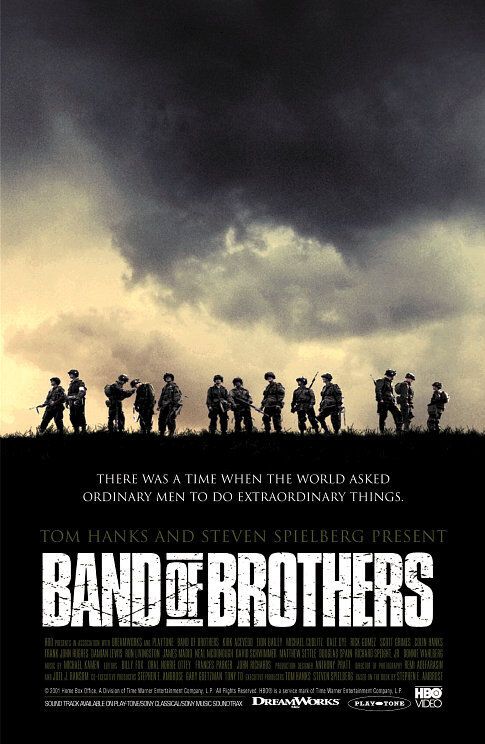What is better than binge-watching one of your favorite shows while sick? Absolutely nothing! That’s precisely what I did last week with HBO’s “Band of Brothers” (2001), produced by Steven Spielberg and Tom Hanks and based on Stephen E. Ambrose’s 1992 non-fiction book of the same name.
The 10-episode mini-series follows the history of the “Easy” Company during the Second World War, exploring their time training in America, dropping over France during D-Day and venturing all the way into Germany at the end of the war.
Interviews with the real men of the Easy Company and Ambrose’s in-depth research create the backbone for the series, which is mostly historically accurate. The series stars Damien Lewis, Ron Livingston, David Schwimmer, Donnie Wahlberg and many, many more.
While television shows in the late 1990s, such as “The Sopranos” (1999), “Sex and the City (1998) and “The West Wing” (1999), were telling engaging stories and drawing large audiences, none of them had large budgets or ones that matched what films received. They all had the distinct feel of television shows, smaller in scale and not as important. However, with “Band of Brothers” this all changed.
Because of the enormous success of “Saving Private Ryan” (1998), Spielberg and Hanks were given $125 million as their budget, or $12.5 million per episode — an unheard-of amount of money for a television show at the time. It was the largest-budgeted show in history. “Band of Brothers” started the trend of “cinematic television.”
Luckily, the budget was put to tremendous use creating some of the most authentic and accurate depictions of war I have ever seen on the big or small screen (not that I know anything about what war is really like). The use of real locations, actual explosions and superb sound design makes the viewer feel as if they are fighting in WWII.
The acting in “Band of Brothers” is also very well done, with the standouts being Lewis and Livingston as Richard Winters and Lewis Nixon, respectively. Winters and Nixon were the leaders of the Easy Company, and Lewis and Livingston’s charisma and confidence aid this perfect translation to the screen.
Every actor in the show had to portray a real person, requiring extensive research on how they talked to each other, acted and fought on the battlefield. I want to highlight other excellent performances, including Shane Taylor as Eugene “Doc” Roe, Eion Bailey as David Webster and Neal McDonough as “Buck” Compton. However, every actor in the show does a fantastic job portraying their respective soldiers.
Furthermore, viewers feel the accuracy of how the military works and the heroic actions taken by these men throughout the show. This attention to detail makes the show feel more like a documentary than a dramatization. The included interviews with the real men of Easy add to this feeling.
“Band of Brothers” is more than just a mini-series. It’s a window into some of the most heartbreaking yet empowering true stories ever told in media and truly underscores the “greatest” in “Greatest Generation.” There is a reason I rewatch “Band of Brothers” almost every month and cry at the end every single time.























































































































